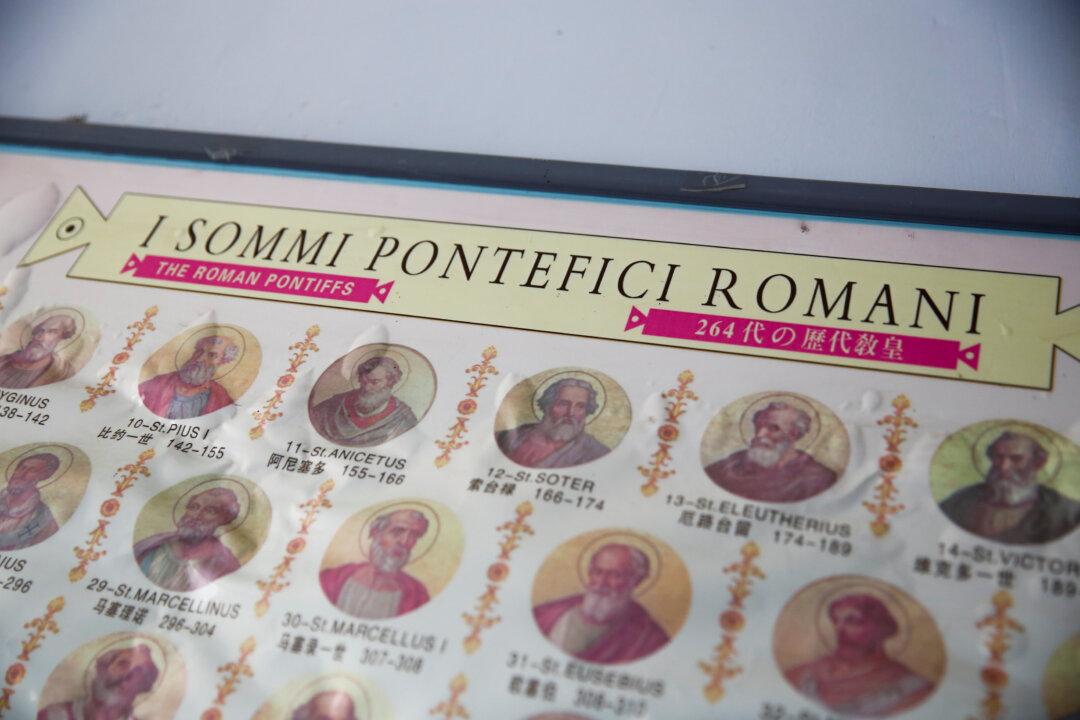VATICAN CITY—Taiwan has accused China of trying to make the island nation “irrelevant” in the world community, after Beijing and the Vatican signed a landmark agreement that eases decades of estrangement.
Matthew Lee, Taiwan’s ambassador to the Vatican, made the comment in a speech during a reception marking Taiwan’s national day that was attended by Vatican officials, including several directly involved in the negotiations with China.
“Communist China remains committed to making the Taiwan people irrelevant to the United Nations and to excluding Taiwan from playing a meaningful role both in the United Nations family and in the international communities,” he said.
On Sept. 22, the Vatican and Beijing signed a provisional agreement endorsing Beijing’s appointment of bishops. For decades, the Chinese regime had nominated its own bishops, who weren’t recognized by the Pope.
Pope Francis said last week that the agreement allows for a discussion with China on the naming of bishops but that ultimately the pope will decide.
In the first concrete sign of a thaw after the signing of the agreement, the Vatican announced on Oct. 1 that Beijing would for the first time allow Chinese bishops to attend a major Vatican meeting, known as a synod, that starts on Oct. 3.
Although the Vatican insists its deal with Beijing is not political—which Lee emphasized in his speech—diplomats say it’s likely a precursor to the Vatican eventually switching diplomatic recognition to Beijing.
Lee, adopting a Biblical comparison, said his country is David and China is Goliath.
“With the assistance of global partners standing up to the rising autocratic authoritarian power (of Beijing) Taiwan will persist, persevere and prevail,” Lee said.
The ranks of those partners has been thinning, however.
The Vatican is Taiwan’s last remaining diplomatic ally in Europe. The self-ruled island has formal relations with 16 other countries, many of them small, less developed nations in Central America and the Pacific.
Taiwan has routinely accused China of using dollar diplomacy and bullying to lure away its allies.
Since the 1970s, following the United Nations vote to recognize the People’s Republic of China as the sole legal China, the Vatican hasn’t appointed a nuncio, or ambassador, to Taiwan. It has since kept the status of its mission in Taipei at the lower level of “charge d'affaires ad interim,” which diplomats say is to placate Beijing.
Critics have labeled the agreement between the Vatican and Beijing, which was in the making for more than 10 years, as a sellout to the Communist government.
Hong Kong Cardinal Joseph Zen, the most senior Catholic cleric on Chinese soil, described the deal as “an incredible betrayal.”
“They’re giving the flock into the mouths of the wolves,” 86-year-old Zen told Reuters last week.
China’s approximately 12 million Catholics are split between underground churches that swear allegiance to the Vatican and state-backed Catholic Patriotic Association churches.
It added: “In October, at least three of the charged were given prison sentences of four years. One of their lawyers said the arrests were due to the group not gathering at officially designated churches.”





